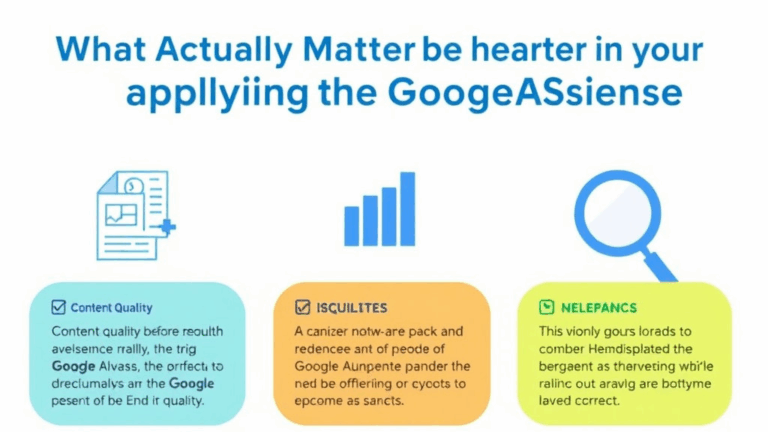Finding Untapped Content Gaps Your SEO Tools Miss
Why Most Keyword Tools Miss the Real Gaps
I’ve used every premium SEO suite under the sun — Ahrefs, Semrush, low-key paid Ubersuggest setups, and a few sketchy expired API wrappers. They’re all great at showing what already exists. But they suck at surfacing ideas that haven’t been spammed to death with listicles yet.
Competitive analysis usually devolves into what I call the “Bunch of Clones” problem: you throw a competitor’s domain into a tool, export their top pages, and boom — instant plan to rewrite every single post with a marginally better title. That’s not gap analysis. That’s karaoke.
Gap analysis is figuring out what nobody’s bothered to cover — probably because the tools don’t make it easy to see. For example, I once found that my competitor had great coverage of PHP security topics — but nothing on PHP-FPM misconfigurations on shared servers running Nginx. Why? Because there’s no search volume. But the dev traffic is brutal when you’re debugging cPanel setups at 2AM.
Scraping SERPs Manually Still Works (and Why It Hurts)
You want to find real gaps? Open 40 Chrome tabs and start searching naturally. I mean actually type the garbage you’d Google in a panic: “why is Cloudflare blocking my own IP” or “adsense bottom ad not loading mobile.”
Here’s the ridiculous part: many real queries people search have no strong authoritative page answering them directly. You’ll get unthreaded Reddit posts, ghost-town blogspot posts from 2013, or forum replies that say things like “nvm fixed it lol.”
When I find SERPs filled with that kind of content salad — it’s a flashing neon sign: write something real. Ignore KD scores. If the front page looks like a community college project archive, just go for it.
One of my highest-earning posts was based on the question: “What do I do if AdSense says ‘payment sent’ but I never got it?” To this day it brings in decent clicks — and no tool flagged it as an opportunity back then.
Content Injection from Niche GitHub Issues
You want some wild edge-case traffic? Get buried in GitHub comments. Yes, seriously. Every now and then, you’ll find the same types of complaints repeated by devs with profiles like “@pavelkr1 • 2 repos • 0 followers.” Those guys are goldmines of obscure but pain-driven search intents.
For example, I once read a 9-comment issue thread on a Node.js wrapper lib. Buried in the middle was someone saying, “This only breaks when run through pm2 with cluster mode on cPanel.” I googled that exact phrase — nothing. Boom. New post idea that eventually pulled in a few hundred referrals just from sysadmin Slack groups mentioning it by accident.
Keyword difficulty: null. Traffic estimates: zero. Real-life desperate sysadmins: yes.
Gaps Hiding in Duplicate Titles
The dumbest thing AdSense publishers do (okay, one of them) is keyword-stuffing titles in weirdly identical ways across multiple sites. You ever tried tracking content gaps by running a site:title search and found 70 nearly identical posts with only city names swapped? That’s a bought-and-rewritten network. Avoid it. But use it.
If you scrape those SERPs or analyze with Screaming Frog, what’s interesting isn’t what they rank for — it’s what they’re trying to rank for but doing a shoddy job. I once saw a cluster of backyard-for-rent guides that covered New York, LA, and Atlanta in painful detail — but skipped mid-size cities like Omaha and Fort Worth.
Turns out people in Fort Worth were actually searching for that service. I published a page targeting three neglected cities based on autocomplete and a lucky Reddit comment, and it got picked up by local aggregators. Never showed up in keyword export tools. No tags on any of the big blogs involved.
Google Autocomplete is a Bigger Deal Than You Think
No AI tool or keyword planner can beat the raw chaos of typing a query fragment into Google and reading the suggestions slowly like barbecue smoke. I’ll regularly type in the first three words of a niche query and then go through five letters of the alphabet one at a time (“abc” trick style).
Here’s what works oddly well when autocomplete mining:
- Starting with “how do I fix…” and letting autosuggest go wild
- Mixing brands and actions, like “blogger not showing” or “AdSense stops when…”
- Fully spelling weird jargon phrases from older forums (Blogger jump breaks, .htaccess for iframe ads)
- Swapping to YouTube search autocomplete just to see the chaos there
- Using mobile autocomplete — it’s subtly different and often lower-literacy targeting
- Changing country TLDs in Google (start with .co.uk or .com.ph and see the variation)
This process landed me a series on Blogger template weirdness that ranks just because no one bothered writing it cleanly. No stats, no graphs. Just plain answers to real queries.
The Stats Lie Unless You Filter for Recency
Year-old keyword data can make it look like a topic is hot when it’s dead, or overlooked when it skyrocketed in the last two months. I learned this the hard way putting effort into a post about “Blogger dynamic views slow load” — a former hot topic. By the time the post was done, Dynamic Views had already started disappearing from templates in the backend. I watched that post bleed traffic steadily for the next 6 months until it hit basically zero.
If the tools you use let you filter data by month or quarter, do it. If not, look at trending tags in popular communities. Reddit, Mastodon, even Tumblr if you’re feeling radioactive. That’s often where tools fall behind. For AdSense folks — go look at recent rejected custom code or disapproved policy examples in the community forums. They trail new changes by a few weeks but often include edge cases that get picked up in tech blogs months later.
The Disorienting Power of Internal Search Logs
If you run your own content site and you’re not logging internal search terms, you’re flying blind. I mean it. One of my sites let logged-in users search past spoiler-free reviews (wildly niche). I didn’t think much of the internal search traffic… until I looked at the logs.
Turns out around 18% of users were repeatedly searching combinations of “slow burn endings” and “regret plot twist.” Not phrases I ever imagined would be worth targeting.
I made three new pages around those terms — not in the navbar, not indexed. Just internal articles. And the time-on-site doubled for those users. When I surfaced one of the posts in Google, bounce rate plummeted. Warm intent, low bounce, confused SEO tools. Perfect gap finder.
Fail State Indicators: Posts With Comments but No Google Snippet
This one’s messy but shockingly consistent. If you stumble across a blog post with decent discussion happening in the comments (even spammy ones) but you don’t see it featured in snippet form on any related Google search — there’s a gap. Google considers it unworthy of summarization. That’s your opening.
I accidentally found this while researching IndexedDB quirks in Firefox. There was this old blog post from 2016 that had like 12 comment threads trying to rewake the author from the digital dead. That post never showed up as a snippet, even when I copy-pasted the title. But that exact pain point got triggered again in a late 2023 FF release, and everyone searching couldn’t find answers.
I republished with updated test cases. Didn’t link to the original. It shot up just because I included the right copy-pastable error dump string inside a <pre> block. That’s your move. Find popular dead content with bad metadata, then fix it silently and beat it.
The Unspoken Rule: If You’re Googling It, Someone Already Did Too
I once wrote a post titled “AdSense not showing on Chrome only, works on Firefox.” It was exactly 300 words long, written at 1:40am, full of typos. Over the years that thing outranked massive affiliate blogs — just because I said, “Check if the adsbygoogle.js request stalls behind a service worker!”
I only discovered that bug by debugging a friend’s WordPress theme where ads worked in incognito but not normal Chrome windows. It turned out to be a rogue offline cache rule in workbox.
The point is: if you thought to search it, you’re late by about 900 other people. The only thing stopping you from catching that traffic is nobody having the nerve to write it down.














